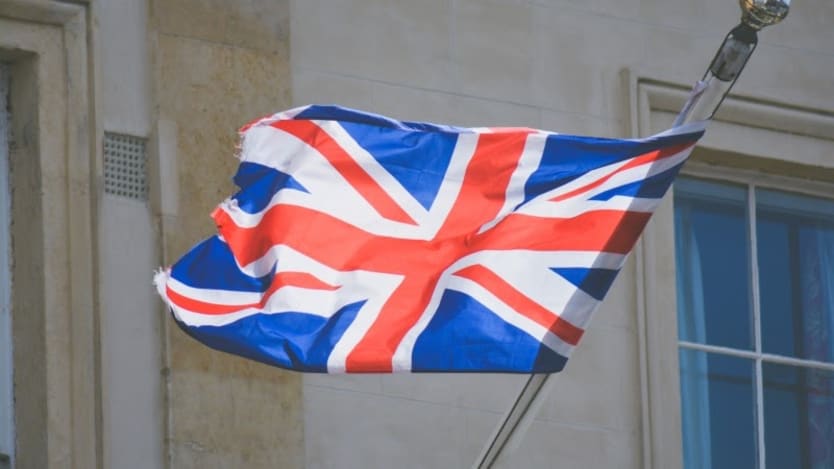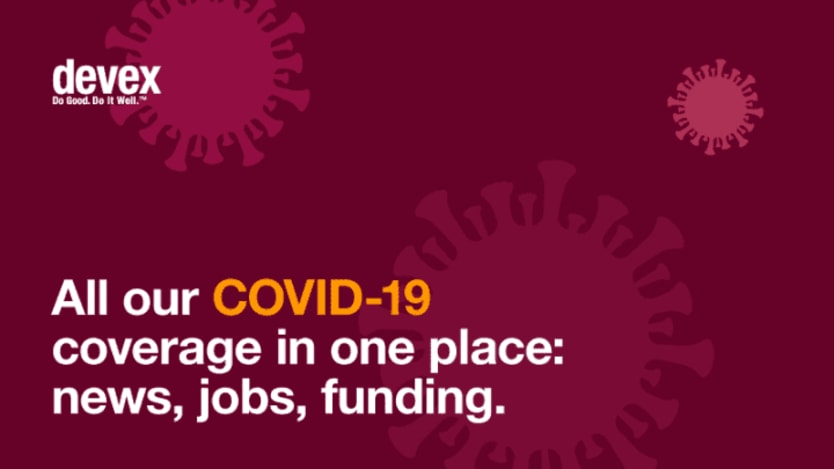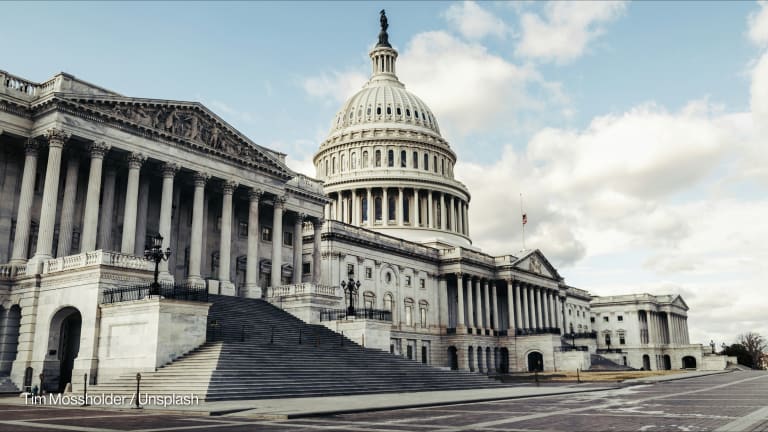
LONDON — After weeks of silence on how it would help NGOs tackle the COVID-19 pandemic internationally, the U.K.’s Department for International Development is set to announce a package of funding to support organizations’ work in low-income countries that are most at risk.
“We need a big injection of funding and quickly. … We are losing time”
— a senior NGO stafferOn a call Friday, DFID told the heads of Britain’s biggest humanitarian NGOs to get ready for new COVID-19 funding to support their operations in a small group of countries, multiple sources told Devex.
This comes after NGOs complained about a lack of contact from the department on how it could help. While aid organizations welcomed the news, they urged DFID to make a hefty commitment and to launch the fund as soon as possible.
We’ve removed our paywall for this article — previously for Pro subscribers only — to provide access to accurate information and resources during the COVID-19 outbreak.
“We need a big injection of funding and quickly. … We are losing time,” a senior NGO staffer who was on the Friday call told Devex.
DFID plans to release the funding through a rapid response facility that was created during Sierra Leone’s cholera outbreak in 2012 as a way of quickly channeling funds into disaster zones through a group of preapproved organizations.
The facility, which was last used in 2015 after the Nepal earthquake, currently has around 35 members, including a mixture of British and European humanitarian NGOs and specialist groups such as The HALO Trust, BBC Media Action, and Internews Europe.
DFID said it will release the call for proposals “in the coming days” and will fast-track the procurement process in an effort to have contracts signed by the end of April, NGO sources told Devex. However, it is not yet known how much money will be made available.
NGOs were also told the package will focus on an as-yet-undetermined group of five to 10 countries, based on need. It will fund public health activities and other interventions such as social protection, water and sanitation, and food security.
NGOs said they were pleased with the announcement but wanted DFID to speed up the process, especially with the long Easter weekend coming up. Some also voiced concerns that the funding will fall short of what is needed. The senior NGO staffer who spoke with Devex said they had heard that DFID was considering making much less available than the £100 million that some NGOs think is needed.
Past epidemics, such as the Ebola crisis, have shown how important NGOs are to disease response — for example, by mobilizing quickly to reach vulnerable communities early and spreading health and hygiene messages, the senior staffer said.
“Anything much less than [£100 million] will indicate that they don’t see NGOs as a central part of the response … [and] that would be a grave mistake to make and significantly impair the sector’s ability to slow down the spread of the disease,” the senior staffer said.
In a statement, a DFID spokesperson said: “We have already pledged to give £544 million of UK aid to the global fight against coronavirus. We know NGOs can play a key role in tackling the virus and will announce details of further support in due course.”
We’ve removed our paywall for this article — previously for Pro subscribers only — to provide access to accurate information and resources during the COVID-19 outbreak.
Visit our dedicated COVID-19 page for news, job opportunities, and funding insights.









